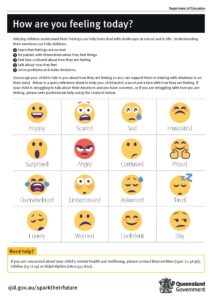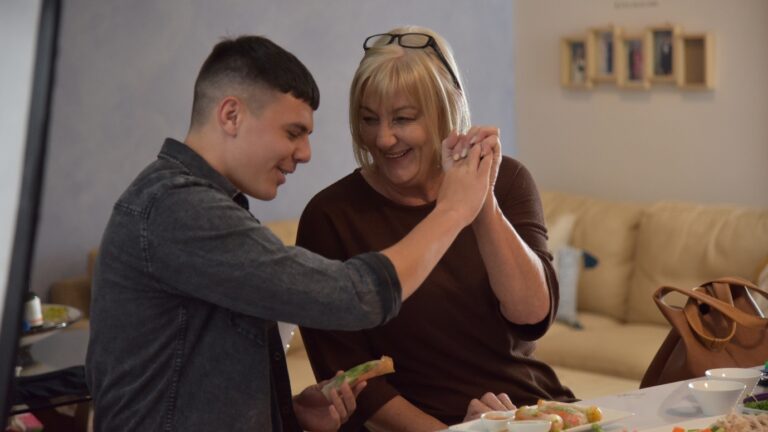There’s a lot going on for teens and with all the changes in their brain coupled with school and friendships, things can get pretty confusing. Fortunately, there are things you can do to help your child get through tough times and stay on track with their education and their life.
1. Help them explore their feelings
Research has found that young people who can describe their different negative emotions in some detail, are better able to deal with them than those kids who can’t. This is because when young people understand what they are feeling, they are better equipped to do something about it. Reassure your child that feeling negative emotions from time to time is normal and that it helps to talk it out. If your child is older, they will also be grappling with many changes in their brain which can sometimes make it more difficult for them to pinpoint exactly how they are feeling, or find the words to describe it.
- Help your child feel more comfortable talking about their feelings by discussing your own feelings. For example, talking about the highs and lows of your day can show your child that there is no judgement in sharing feelings, including negative ones.
- Help your child notice how their body is reacting. For example, they might feel ‘foggy’ in the head or sick in the stomach. These physical reactions can sometimes be a clue to what is going on for them emotionally.
- Encourage your child to develop their emotional language by naming their feelings. Over time, as you help them tune into their emotions, they can build their emotional vocabulary to talk about and better understand their feelings.
- Avoid correcting or debating your child’s feelings and when they share how they are feeling, let them know how much you value their thoughts.
Helping your child understand what they are feeling, can help them work out what they can do to deal with their emotions, whether it be taking a walk, writing down what’s on their mind, or talking to a school guidance officer.
![]()
2. Encourage connections with trusted adults
Encourage your child to chat to trusted adults in their lives about what’s going on for them. It could be someone in your family or circle of friends or even a teacher at school. Research has found that young people who have mentor-like relationships with trusted adults are more likely to complete the tasks they start, remain calm in the face of challenges, show interest in learning new things, and engage in activities at school.
3. Guide them to useful online resources
The We the Differents website has some useful online resources for young people offering them tips and ideas for staying on track at school and ways young people can get help if they are really struggling. Most kids will want to explore a new website when they feel like it, not necessarily when you want them to. Consider writing the name of the website on a post-it and leaving it on their desk or maybe ask a trusted adult to suggest they check it out. Or find an article you think will mean something to them and leave a copy where they might find it.
4. Talk to their school
There are lots of ways your child’s school can offer support to help your child overcome problems they are experiencing at school. By getting in touch with the school, you’re also showing your child you value education and that schools are there to help them when they need it. Sometimes it takes a little bit of time and persistence to find the right person to have this kind of conversation with at school, but keep trying. Your persistence models to your child this key skill for succeeding in the face of challenges.

5. Encourage their spark
When your child is struggling with school, spending time doing something they really enjoy can help them get back on track. Your child’s spark is helping them learn too. When your child follows their spark, they are learning through something that is relevant and meaningful to them. Finding a little joy, a little success, or a little hope in one area of their lives can start a flame that can ignite their self-esteem, and help them feel more confident about tackling problems they may be facing at school.
![]()
Last Updated: 08 December 2022






